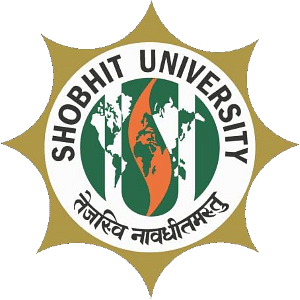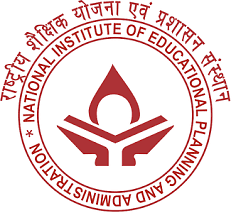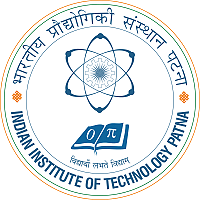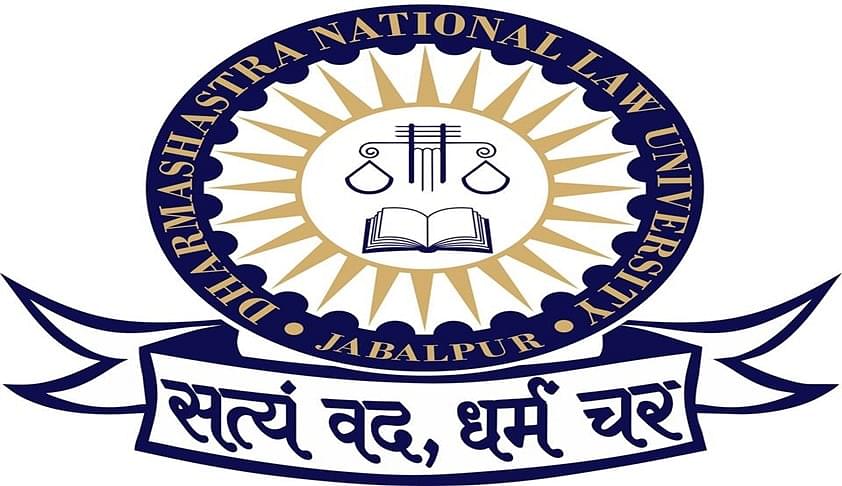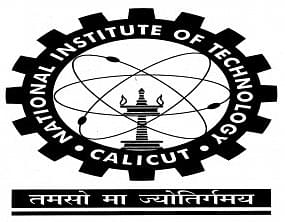Introduction about Ph. D in Bio Tech
A Ph.D. in Biotechnology from best college is
a doctoral-level academic program designed to equip students with advanced
knowledge and research skills in the interdisciplinary field of biotechnology.
Biotechnology encompasses the application of biological principles, techniques,
and processes to develop products and solutions that benefit society across
various sectors such as healthcare, agriculture, environment, and industry. A
Ph.D. in Biotechnology program offers students the opportunity to engage in
cutting-edge research, explore diverse areas of biotechnology, and contribute
to scientific advancements and innovation in the field.
Here's an
introduction to a Ph.D. in Biotechnology program:
Interdisciplinary
Nature of Biotechnology:
Biotechnology is a highly interdisciplinary field that integrates principles
and methodologies from biology, chemistry, physics, engineering, computer
science, and other disciplines. A Ph.D. in Biotechnology program provides
students with a comprehensive understanding of the interdisciplinary nature of
biotechnology and prepares them to address complex challenges at the interface
of multiple disciplines.
Advanced Study of
Biotechnological Concepts:
Ph.D. programs in Biotechnology offer advanced coursework covering a wide range
of topics related to biotechnological concepts, methods, and applications.
Common areas of study include molecular biology, genetics, biochemistry,
microbiology, cell biology, immunology, bioinformatics, bioprocessing,
genomics, proteomics, metabolic engineering, synthetic biology, and
nanobiotechnology.
Research
Methodologies and Experimental Techniques: Ph.D. students in Biotechnology receive rigorous training in research
methodologies and experimental techniques used in biotechnological research.
They gain hands-on experience with a variety of laboratory techniques,
instrumentation, and computational tools commonly employed in biotechnology,
including DNA sequencing, PCR, cloning, gene editing, protein purification,
cell culture, microscopy, spectroscopy, mass spectrometry, and bioinformatics
analysis.
Specialization and
Concentrations: Ph.D.
programs in Biotechnology allow students to specialize in specific areas of
interest within the field. Specializations may include:
Medical
Biotechnology: Research focused on developing diagnostics, therapeutics,
vaccines, and medical devices for the diagnosis, treatment, and prevention of
human diseases.
Agricultural
Biotechnology: Research aimed at improving crop productivity, disease
resistance, nutritional value, and environmental sustainability through genetic
engineering, molecular breeding, and biotechnological interventions.
Environmental
Biotechnology: Research addressing environmental challenges such as pollution
remediation, waste management, renewable energy production, and conservation of
natural resources using biotechnological approaches.
Industrial
Biotechnology: Research focused on the production of bio-based chemicals,
fuels, materials, and enzymes using microbial fermentation, metabolic
engineering, and bioprocess optimization.
Pharmaceutical
Biotechnology: Research related to drug discovery, drug delivery,
pharmacogenomics, personalized medicine, and biopharmaceutical production using
biotechnological methods.
Dissertation
Research and Writing: A
central component of Ph.D. programs in Biotechnology is the completion of a
doctoral dissertation. The dissertation is an original research project that
contributes new knowledge to the field of biotechnology. Students work closely
with faculty advisors or dissertation committees to identify research
questions, design experiments, conduct research, analyze data, and disseminate
results through scholarly publications and presentations.
Teaching and
Professional Development:
Ph.D. students in Biotechnology may have opportunities to gain teaching
experience and professional development. They may serve as teaching assistants,
lead discussions, design course materials, and deliver lectures in
undergraduate or graduate biotechnology courses. They may also participate in
workshops, seminars, and conferences to enhance their communication skills,
presentation skills, research ethics, and knowledge of emerging trends and
technologies in biotechnology.
Career
Opportunities: Graduates of
Ph.D. programs in Biotechnology pursue diverse career paths in academia,
industry, government, research institutions, and healthcare organizations. They
work as researchers, faculty members, research scientists, biotechnologists,
bioinformatics specialists, regulatory affairs professionals, technology
transfer officers, and entrepreneurs, contributing to the development,
implementation, and commercialization of biotechnological innovations and
solutions worldwide.
Overall, a Ph.D. in
Biotechnology is a challenging and rewarding program that prepares graduates
for leadership roles in research, innovation, and entrepreneurship in the
dynamic and rapidly evolving field of biotechnology. It offers opportunities
for advanced study, specialized training, interdisciplinary collaboration, and
professional development, enabling graduates to address pressing global
challenges, improve human health, enhance food security, and promote
sustainable development through biotechnological advancements.
What is admission process for Ph. D in Bio Tech ?
The admission process for Ph.D. in Biotechnology program
can vary depending on the institution offering the program and its specific
requirements. However, here is a general overview of the typical admission
process for Ph.D. programs in Biotechnology:
Research and
Identify Programs: Research
and identify universities, colleges, or institutions that offer Ph.D. programs
in Biotechnology. Consider factors such as faculty expertise, research
opportunities, program curriculum, facilities, location, and overall fit with
your academic and career goals.
Check Admission
Requirements: Review the
admission requirements for each Ph.D. in Biotechnology program you are
interested in applying to. Admission requirements may vary but commonly
include:
A master's or
bachelor's degree in biotechnology, biology, biochemistry, molecular biology,
genetics, microbiology, chemistry, or a closely related field from an
accredited institution. Some programs may accept applicants with degrees in
other disciplines if they have relevant coursework or research experience in
biotechnology or related fields.
Minimum GPA
requirements for previous academic coursework. The minimum GPA requirement may
vary by program but is typically around 3.0 on a 4.0 scale.
Graduate Record
Examination (GRE) scores. Some Ph.D. programs in Biotechnology may require
applicants to submit scores from the GRE General Test, which includes sections
on verbal reasoning, quantitative reasoning, and analytical writing. However,
this requirement may be waived or optional in some cases.
Letters of
recommendation from academic or professional references who can speak to the
applicant's academic abilities, research experience, and potential for success
in a Ph.D. program in Biotechnology. The number of letters required may vary by
program, but it is commonly around three letters.
Statement of
purpose or personal statement outlining the applicant's academic and research
interests, career goals, and reasons for pursuing a Ph.D. in Biotechnology.
This statement provides an opportunity for applicants to demonstrate their
motivation, passion, and fit for the program.
Resume or
curriculum vitae (CV) detailing the applicant's academic background, research
experience, work experience, publications, presentations, and relevant skills.
Writing samples or
research papers demonstrating the applicant's research abilities and interests
in biotechnology-related topics. These samples provide evidence of the
applicant's research experience, writing skills, and potential for conducting
original research in the field.
Contact Potential
Advisors: Reach out to
faculty members or potential advisors in the Ph.D. in Biotechnology programs
you are interested in to discuss your research interests and determine if there
are faculty members willing to mentor you and support your research goals.
Prepare Application
Materials: Gather all
required application materials, including transcripts, test scores, letters of
recommendation, statement of purpose, resume or CV, writing samples, and any
other documents specified by the program.
Submit Application: Complete and submit the application form
for each Ph.D. in Biotechnology program you are applying to. Follow the
application instructions provided by each institution, paying attention to
deadlines and submission requirements.
Pay Application
Fees: Pay any application
fees required by the institutions you are applying to. Some programs may offer
fee waivers for qualified applicants, so be sure to inquire about waiver
options if applicable.
Interview (if
required): Some Ph.D.
programs may require applicants to participate in interviews as part of the
selection process. Prepare for interviews by reviewing common interview
questions and highlighting your qualifications, research interests, and goals
related to biotechnology.
Submit Additional
Documentation (if required):
If requested by the program, submit any additional documentation or materials
required for the application process, such as samples of your academic or
research work.
Wait for Admission
Decision: After submitting
your application, wait for the admission decision from each institution.
Admission decisions are typically communicated via email, postal mail, or
through an online application portal.
Acceptance and
Enrollment: If you receive
an offer of admission, carefully review the terms and conditions of the offer.
If you decide to accept the offer, follow the instructions provided by the
institution to confirm your acceptance and complete the enrollment process,
which may include submitting enrollment deposits and registering for classes.
It's important to
start the application process early and carefully review the requirements and
deadlines for each Ph.D. in Biotechnology program you are considering. Be sure
to follow the instructions provided by each institution and reach out to admissions
offices or program coordinators if you have any questions or need clarification
on specific requirements. Additionally, establishing connections with potential
advisors and faculty members can strengthen your application and increase your
chances of admission to Ph.D. programs in Biotechnology.
What is eligibility for Ph. D in Bio Tech?
The eligibility criteria of Ph.D. in Biotechnology program
can vary depending on the institution offering the program and its specific
requirements. However, here are some common eligibility criteria that are
typically required for admission to Ph.D. programs in Biotechnology:
Educational
Background:
A master's or
bachelor's degree in biotechnology, biology, biochemistry, molecular biology,
genetics, microbiology, chemistry, or a closely related field from an
accredited institution is usually required for admission to Ph.D. programs in
Biotechnology. Some programs may accept applicants with degrees in other
disciplines if they have relevant coursework or research experience in
biotechnology or related fields.
Minimum GPA:
Applicants are
typically required to have a minimum undergraduate or graduate GPA to be
considered for admission to Ph.D. programs in Biotechnology. The minimum GPA
requirement may vary by program, but it is typically around 3.0 on a 4.0 scale.
Graduate Record
Examination (GRE) Scores:
Some Ph.D. programs
in Biotechnology may require applicants to submit scores from the Graduate
Record Examination (GRE), which includes sections on verbal reasoning,
quantitative reasoning, and analytical writing. However, this requirement may
be waived or optional in some cases. Applicants should check the specific
requirements of each program they are interested in applying to determine
whether GRE scores are required and what minimum score thresholds, if any,
apply.
Letters of
Recommendation:
Applicants are
usually required to submit letters of recommendation from academic or
professional references who can speak to the applicant's academic abilities,
research experience, and potential for success in a Ph.D. program in
Biotechnology. The number of letters required may vary by program, but it is
commonly around three letters.
Statement of
Purpose:
Applicants are
typically required to submit a statement of purpose or personal statement
outlining their academic and research interests, career goals, and reasons for
pursuing a Ph.D. in Biotechnology. This statement provides an opportunity for
applicants to demonstrate their motivation, passion, and fit for the program.
Resume or
Curriculum Vitae (CV):
Applicants are
often required to submit a resume or curriculum vitae (CV) detailing their
academic background, research experience, work experience, publications,
presentations, and relevant skills. This document provides a comprehensive
overview of the applicant's qualifications and accomplishments.
Writing Samples or
Research Papers:
Some Ph.D. programs
in Biotechnology may require applicants to submit writing samples or research
papers demonstrating their research abilities and interests in
biotechnology-related topics. These samples provide evidence of the applicant's
research experience, writing skills, and potential for conducting original
research in the field.
It's important to
note that the specific eligibility criteria for Ph.D. programs in Biotechnology
may vary from one institution to another, so it's essential to carefully review
the admission requirements of each program you are interested in applying to.
Additionally, meeting the minimum eligibility criteria does not guarantee
admission to a Ph.D. program, as admission decisions are based on a holistic
review of the applicant's qualifications, accomplishments, research interests,
and fit with the program.
What is syllabus of Ph. D in Bio Tech?
The syllabus of Ph.D. in Biotechnology program can vary
significantly depending on the specific focus areas, research interests, and
faculty expertise of the institution offering the program. However, here is a
general overview of the typical components of a Ph.D. in Biotechnology
syllabus:
Core Courses in
Biotechnology:
Advanced topics in
molecular biology: Advanced concepts in DNA replication, transcription,
translation, gene expression regulation, genetic engineering, recombinant DNA
technology, and genome editing techniques such as CRISPR-Cas9.
Advanced topics in
biochemistry: Advanced principles of protein structure and function, enzyme
kinetics, metabolic pathways, biochemical signaling, protein purification
techniques, and biochemical assays.
Advanced topics in
cell biology: Advanced concepts in cell structure and function, cell signaling,
cell cycle regulation, cell differentiation, stem cell biology, and cell
culture techniques.
Advanced topics in
microbiology: Advanced principles of microbial diversity, microbial physiology,
microbial genetics, microbial ecology, microbial pathogenesis, and industrial
microbiology.
Advanced topics in
immunology: Advanced concepts in immune system function, immune responses,
immune regulation, immunological techniques, and vaccine development.
Research
Methodologies and Experimental Techniques:
Research design and
methodology: Training in research methodologies and experimental techniques
used in biotechnological research, including molecular biology techniques,
protein purification methods, cell culture techniques, microbiological
techniques, and immunological assays.
Laboratory
techniques: Hands-on experience with a variety of laboratory techniques and
instrumentation commonly used in biotechnology research, including PCR, gel
electrophoresis, DNA sequencing, Western blotting, flow cytometry, mass
spectrometry, and microscopy.
Bioinformatics
analysis: Introduction to bioinformatics tools and databases for sequence
analysis, genome annotation, protein structure prediction, phylogenetic
analysis, and data mining.
Specialization
Courses:
Elective courses:
Specialized courses in specific areas of interest within biotechnology,
tailored to the student's research interests, career goals, and chosen area of
specialization. Specialization areas may include:
Molecular
biotechnology: Advanced courses in gene expression analysis, protein
engineering, gene therapy, synthetic biology, and drug discovery.
Medical
biotechnology: Advanced courses in medical diagnostics, molecular medicine,
personalized medicine, regenerative medicine, and biopharmaceutical production.
Agricultural
biotechnology: Advanced courses in crop biotechnology, plant genetics, plant
breeding, crop improvement, and sustainable agriculture practices.
Industrial
biotechnology: Advanced courses in bioprocess engineering, fermentation
technology, bioreactor design, metabolic engineering, and bio-based product
development.
Seminar Series and
Journal Clubs:
Seminar series:
Attendance and participation in seminars, workshops, and colloquia featuring
presentations by faculty members, visiting scholars, and fellow students on
current research topics, breakthroughs, and controversies in biotechnology.
Journal clubs:
Participation in journal clubs focused on critically evaluating and discussing
recent research articles and publications in biotechnology-related journals.
Students present and lead discussions on assigned papers, fostering critical
thinking, scientific communication, and collaboration.
Dissertation
Research and Writing:
Dissertation
proposal development: Development of a research proposal outlining the research
questions, objectives, theoretical framework, research design, methods, data
collection plan, and significance of the doctoral dissertation. Supervised by a
faculty advisor or dissertation committee.
Dissertation
research: Conducting original research, data collection, analysis,
interpretation, and writing of the doctoral dissertation. The dissertation
should make a significant contribution to the field of biotechnology and
demonstrate the student's ability to conduct independent research, engage with
existing literature, and advance knowledge in their chosen area of study.
Teaching and
Professional Development:
Teaching practicum:
Teaching assistantship or supervised teaching experiences in undergraduate or
graduate biotechnology courses. Students gain experience in course design,
lesson planning, classroom management, assessment strategies, and student
engagement.
Professional development workshops: Participation in workshops, seminars, and conferences focused on scientific communication, presentation skills, grant writing, research ethics, and career development. Students develop skills and strategies for successful academic and research careers in biotechnology.





